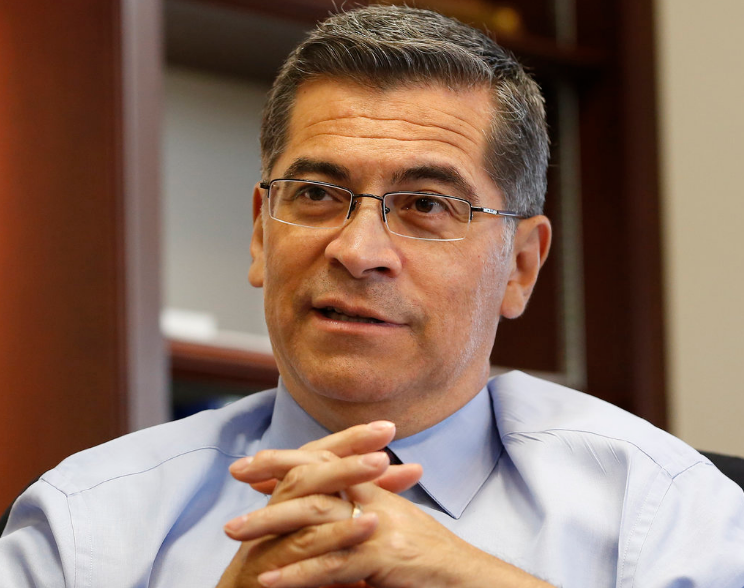
- Details
- By Native News Online Staff
Becerra Will Take Aim at the Crumbling Rural Healthcare System Plagued by Hospital-Closings Serving Indian Country: The Response that Led to the COVID-19 Epic ‘Fail’
WASHINGTON — Facing pushback from Republican senators, California Attorney General Xavier Becerra, President Biden’s nominee to become the next Health and Human Services secretary, only garnered a 14-14 tie coming out of Senate Finance Committee on Wednesday.
This means Majority Leader Chuck Schumer will have to bring the nomination to the full Senate for a four -hour debate prior to taking a vote to confirmation. If all Democrats and Republicans vote down party lines, Vice President Kamala Harris, a Democrat, would be needed to cast the deciding vote to confirm Becerra.
On Friday, three American Indian organizations sent a joint letter to Senate leaders urging senators to support the nomination of Becerra. The letter stressed he will reverse the hospital crisis plaguing rural states and repair and reform the broken federal healthcare system that serves all American Indians and Alaska Natives.
In the strongly worded letter, the leaders of the Rocky Mountain Tribal Leaders Council, the Global Indigenous Council, and the Great Plains Tribal Chairmen’s Association gave particular attention to how the coronavirus pandemic demonstrated with deadly accuracy the multitude of problems in the health system across Indian Country.
“For the Indigenous community, the swift confirmation of AG Becerra is literally a matter of life and death,” the groups wrote in the letters to senators. “In this moment of severe challenge and crisis in our country, we appeal for bipartisanship to save lives.”
The letter detailed the problems with the federal healthcare system specific to the coronavirus pandemic, including:
- Many Indian reservations served by IHS had no ICU beds at the outset of the pandemic
- Many tribal administrations had to create hastily organized quasi-ICU facilities in empty buildings or Boys and Girls Clubs, some even erecting tent cities for quarantine areas.
- Tribes were left to scramble for PPE and some only received critical supplies by the grace of private donors while the federal response was for month’s missing-in-action
Tom Rodgers (Blackfeet), president of the Global Indigenous Council, noted “the shameful and unnecessary crisis within the Indian Health Service (IHS) labyrinth is overshadowed by a crumbing rural healthcare system that was ignored as hospitals shuttered and doctors moved to cities and the suburbs, but the fact is IHS is so mired in malpractice and incompetence that it leaves even the urban Indigenous population at risk.”
“It’s shocking, frankly, that in the last four years an administration so tied to rural voters was detached from the healthcare needs of those people, and apparently got away with it,” Rodgers said. “With the utmost confidence, I can say firsthand that Atty. Gen. Becerra is going to jump on the overarching healthcare crisis, and he recognizes how repairing the system that serves Native Americans and Alaska Natives fits into that undertaking.”
The Indigenous groups backing Becerra led a successful effort backing the nomination of Deb Haaland as secretary of the Interior. Additional Indigenous groups are expected to join in supporting California Atty. Gen. Becerra for secretary of HHS.
More Stories Like This
Native News Weekly (August 25, 2024): D.C. BriefsUS Presidents in Their Own Words Concerning American Indians
Federal Court Dismisses Challenge to NY Indigenous Mascot Ban
Sen. Angus King Warns of ‘Whitewashing’ History in National Parks Under Trump Administration
Final Call for Donations as CRYP’s 2025 Toy Drive Nears the Finish Line
Help us defend tribal sovereignty.
At Native News Online, our mission is rooted in telling the stories that strengthen sovereignty and uplift Indigenous voices — not just at year’s end, but every single day.
Because of your generosity last year, we were able to keep our reporters on the ground in tribal communities, at national gatherings and in the halls of Congress — covering the issues that matter most to Indian Country: sovereignty, culture, education, health and economic opportunity.
That support sustained us through a tough year in 2025. Now, as we look to the year ahead, we need your help right now to ensure warrior journalism remains strong — reporting that defends tribal sovereignty, amplifies Native truth, and holds power accountable.
 The stakes couldn't be higher. Your support keeps Native voices heard, Native stories told and Native sovereignty defended.
The stakes couldn't be higher. Your support keeps Native voices heard, Native stories told and Native sovereignty defended.
Stand with Warrior Journalism today.
Levi Rickert (Potawatomi), Editor & Publisher

